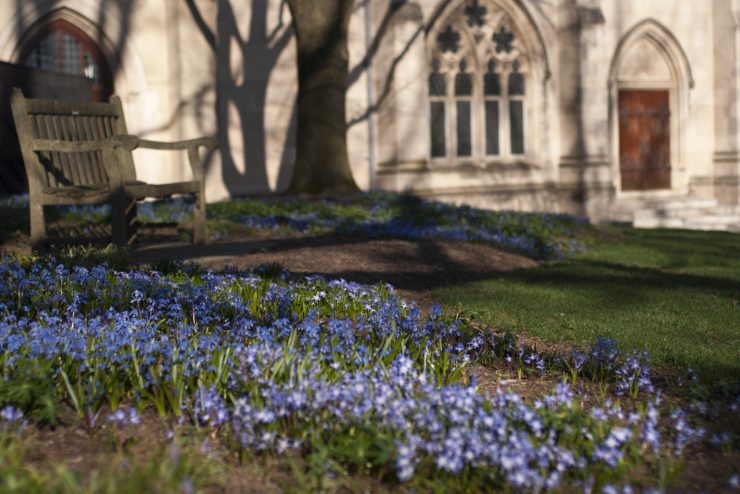‘His own people did not accept him’

Mark 6:1-13
He left that place and came to his hometown, and his disciples followed him. On the sabbath he began to teach in the synagogue, and many who heard him were astounded. They said, “Where did this man get all this? What is this wisdom that has been given to him? What deeds of power are being done by his hands! Is not this the carpenter, the son of Mary and brother of James and Joses and Judas and Simon, and are not his sisters here with us?” And they took offense at him. Then Jesus said to them, “Prophets are not without honor, except in their hometown, and among their own kin, and in their own house.” And he could do no deed of power there, except that he laid his hands on a few sick people and cured them. And he was amazed at their unbelief. Then he went about among the villages teaching. He called the twelve and began to send them out two by two, and gave them authority over the unclean spirits. He ordered them to take nothing for their journey except a staff; no bread, no bag, no money in their belts; but to wear sandals and not to put on two tunics. He said to them, “Wherever you enter a house, stay there until you leave the place. If any place will not welcome you and they refuse to hear you, as you leave, shake off the dust that is on your feet as a testimony against them.” So they went out and proclaimed that all should repent. They cast out many demons, and anointed with oil many who were sick and cured them.
The gospels tell us frustratingly little about Jesus’ life prior to the start of his ministry. Mark, in fact, introduces Jesus as he is baptized by John in the Jordan and tells us nothing of his life before. Luke includes one brief story from Jesus’ teenage years, and these opening verses of Mark 6 tell us that Jesus had siblings and that he was a carpenter (Mark 6:3). Beyond these precious few details, we are left to wonder and imagine what it was like for a young Jesus growing up in Nazareth.
Though we know little about Jesus’ early years and the people among whom he lived, we do know one thing for sure: they rejected him. Mark tells us, ‘they took offense at him’ (Mark 6:3). A similar idea is found in the prologue to John: ‘He came to what was his own, and his own people did not accept him’ (John 1:11).
To not be accepted by family or community of origin is a deeply painful experience. Many people find family not among those of blood relation but in a family of choice. Early in Mark’s gospel we see Jesus expanding his own sense of family: ‘whoever does the will of God is my brother and sister and mother’ (Mark 3:35). For Jesus, family is found in the community that follows him— the family and household of God to which we too belong and where we claim our identity as children of God.
Peace,
Patrick+
O God, you so loved the world that you gave your only begotten Son to reconcile earth with heaven: Grant that we, loving you above all things, may love our friends in you, and our enemies for your sake; through Jesus Christ our Lord, who lives and reigns with you and the Holy Spirit, one God, for ever and ever. Amen. (Lesser Feasts and Fasts, 2006, p. 40)